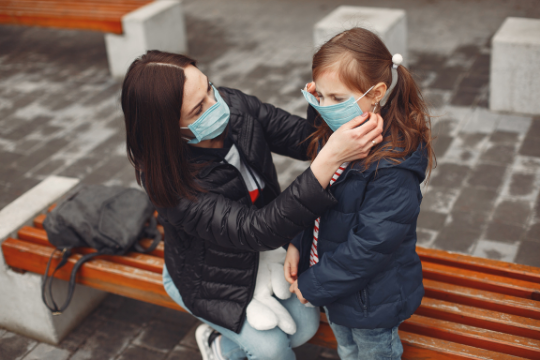No matter what your school’s size may be, it is extremely important to have a plan in place for any crisis that may occur on campus. Not only does this help ensure the safety of your community, but it also shows that you are doing everything in your power to care for your students. One of the benefits of going to a small school is that you can count on a personal response team that can better handle complicated situations due to the smaller number of students. One of the main factors that cause small schools to excel in crisis situations is the close-knit relationships that are formed between students, faculty, and administration.
Resources Needed to Create a COVID Response Team:
There are a number of factors involved in properly creating a COVID response team within your small school layout, and they are also relevant for all schools. Here are some resources needed for creating a COVID response team:
Faculty Guidelines
In order to have a successful response team, you must first lay out guidelines for your faculty. This needs to be done before the plan is presented to any of the students as it will help ensure that both administration and staff are on the same page. It will also prepare them for their important role in crisis situations.
Emergency Preparedness Plan
The emergency preparedness plan must be clear and concise. It should include any possible COVID-related scenarios that may occur on campus as well as how to handle them. In the event of a crisis situation, students and faculty need to have some sort of instruction manual on hand at all times.
Notification System
Another important aspect of the COVID response team is a notification system. Notifications can come in many forms, such as phone calls, emails, and text messages. In most cases, it is a good idea to have all three options available so you can reach as many people as possible. You also want to ensure that your notification system provides specific information about the types of emergencies that they will receive notifications for.
Important Contact Information
There are many COVID events that may occur on campus during which you will not be present. However, most of these scenarios are usually handled by local law enforcement professionals. To ensure the safety of your school community it is important to have all contact information easily accessible.
Assigned Leadership Roles and Responsibilities
It is important to assign leadership roles and responsibilities, especially to your faculty. This will allow for a smooth response plan should any crisis occur. It also allows them to be prepared for whatever may happen on campus at all times.
Training Opportunities
Training opportunities are a key aspect of being able to effectively respond to any type of crisis. These training programs allow for your faculty and students to be prepared just in case a COVID response situation were to occur on campus.
Faculty training opportunities throughout the year (mandatory or voluntary). The emergency preparedness plan will include all of the necessary information that any individual would need in order to make immediate decisions if a crisis were to occur.
How Small Schools Can Handle COVID Better Than Larger Schools
Small schools can handle COVID better than larger schools because since they don’t have to account for as many students, it’s easier to have a better sense of the structure and protocols that would be put in play during an actual crisis. Training plans for both students and faculty are easier to implement.
Larger schools struggle with COVID because of how vast their resources are. Training opportunities for students and faculty become difficult to manage because of the sheer number of people who need special attention.
How A COVID Response Team Can Help Prevent the Spread
COVID is a fast-spreading issue. A COVID response team can help prevent the spread of COVID by having a detailed plan that includes crisis prevention and information on how to handle situations in a calm and collected manner. This will allow for a quicker, more efficient reaction time to any sort of crisis situation.
Here are the ways a designated team would deal with a COVID outbreak:
-Conduct wide scale testing on a regular basis for COVID infections.
-Making sure students have properly quarantined as well as the classmates of those who test positive.
-Inform parents of their children’s status as well as the process for follow-up testing, etc.
-Providing assistance to the families with children who’d tested positive for COVID.
-Managing social media groups and mobile applications to report new cases and updates while quarantining.
In the event of a crisis, it is best to have as much information as possible available. It’s important for your school community to be informed and prepared no matter what type of emergency may arise. A COVID response team ensures that your students and faculty are trained and ready to handle any COVID-related situation that may arise.
SchoolCues is an all-in-one school management system for small schools with limited budgets and resources. Our solutions include admissions and enrollment, online payments, student information system, gradebook, communications, parent engagement, donations and fundraising, alumni management and more. Schedule a demo with us today.
